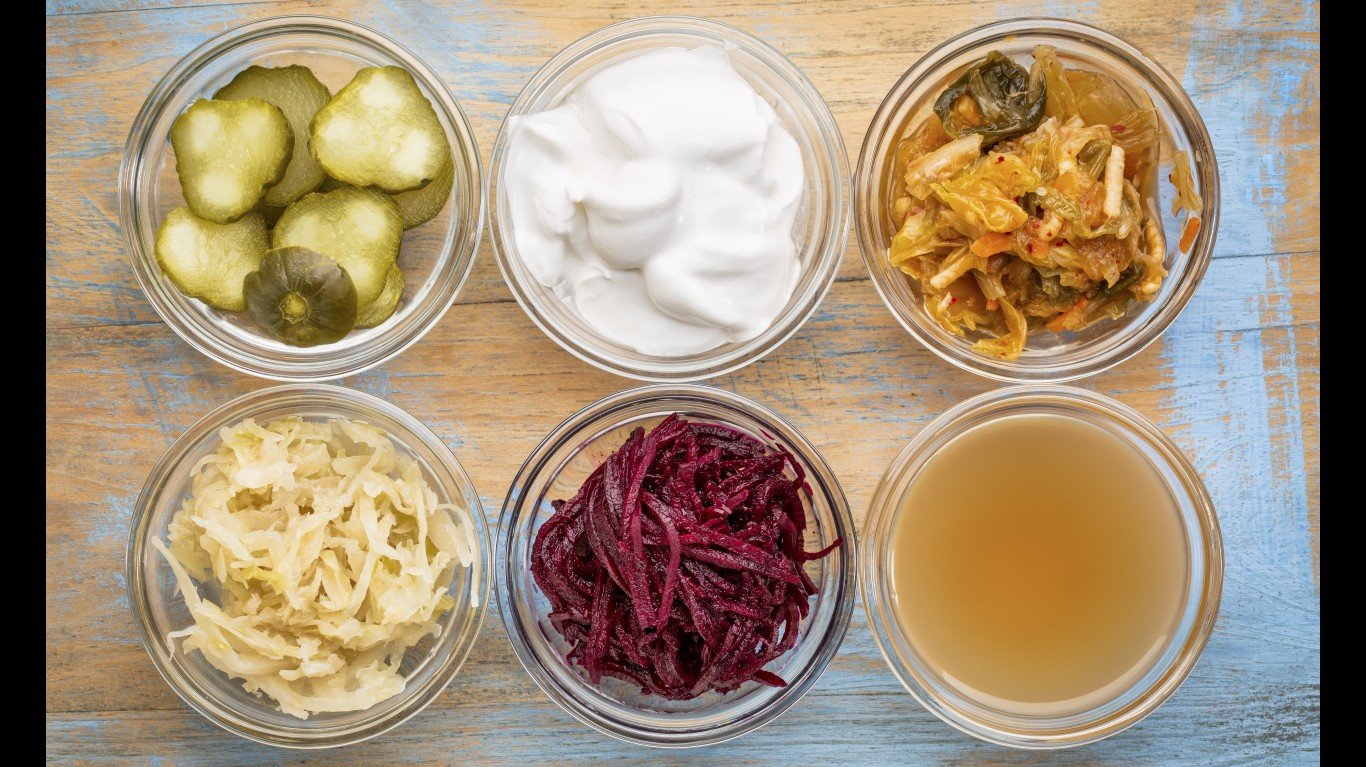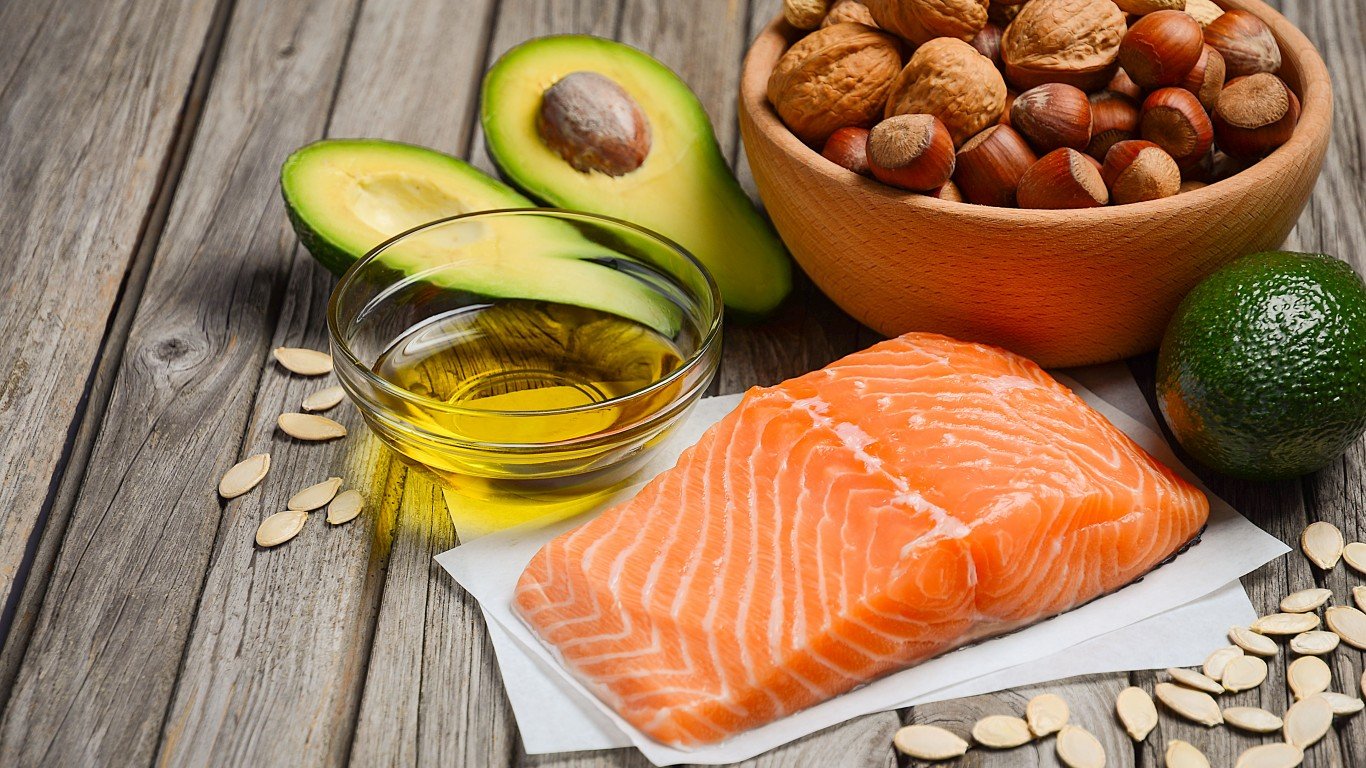
6. Tend to your gut health with fiber and probiotics
The bacterial colony in your intestines, called your gut microbiota, is intricately connected to your mood, immune system, and propensity for chronic inflammatory diseases and obesity.
Two great ways to keep your microbiota healthy are eating sufficient dietary fiber and eating probiotics, either in the form of dietary supplements containing active cultures, or by eating fermented foods such as yogurt and sauerkraut. It is important to note that more studies are needed on how probiotics can improve gut health.

7. Don’t fear all fats
The notion that eating fat makes you fat is outdated. What might make you fat is choosing low-fat foods that contain high amounts of refined carbohydrates.
Your body needs fat to function and absorb nutrients, and essential fatty acids, particularly omega-3s, are crucial to proper brain function. Unsaturated fats, such as those found in olive oil, nuts, seeds, fish, and avocados are considered healthy. The trick is to avoid trans fats and limit saturated fats intake.
8. Eat more whole fruits and vegetables
A diet high in fruits and vegetables is associated with lower risks of cancer, heart disease, stroke, and diabetes. A new study also suggests that eating more fruits and vegetables may benefit psychological health as well.

9. Drink water, especially before meals
The importance of drinking water cannot be overstated. It keeps the kidneys functioning — and helps prevent kidney stones — while also preventing constipation and dehydration.
It is also associated with weight management. Replacing sugary drinks such as soda with water can lead to less calorie consumption, and some studies suggest that people who drink water before meals may consume less calories and also lose weight more readily.

10. Consider nutrients instead of counting calories
Reducing daily eating patterns to a calorie count overlooks the fact that certain foods contain empty calories with little nutritional value. Some food options contain a significant amount of nutrients per ounce and are more satiating, which may help you consume less calories at the end of the day.
Take nuts for example: they contain fiber, which helps you feel full immediately, and protein, which helps you feel full for longer. Rather than counting calories, focus on eating high-quality foods such as whole grains, vegetables, and healthy protein sources.






